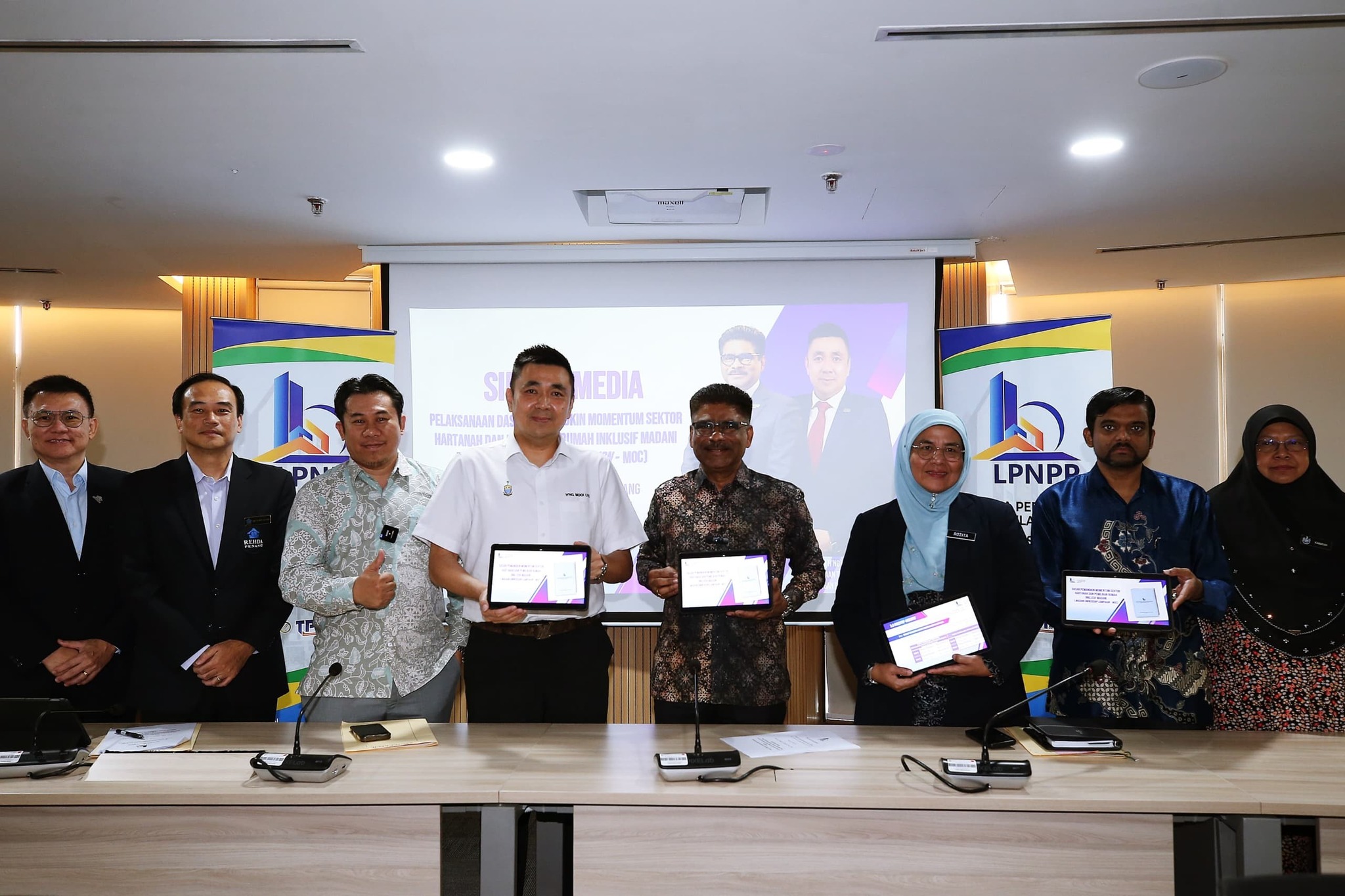Penang launches MADANIHome Ownership Campaign (MOC) to boost housing market
The Penang state government has launched the MADANIHome Ownership Campaign (MOC) 1.0, a strategic initiative aimed at revitalising the local property sector and promoting homeownership among Penangites.
Spearheaded by the Penang State Housing Board, the year-long campaign—from 1 June 2025 to 31 May 2026—introduces a range of incentives to stimulate market demand and tackle the issue of unsold housing units.
State Housing and Environment Committee chairman Datuk Seri Sundarajoo Somu emphasised the campaign’s dual objectives: “We want to spur the market and help resolve the property overhang,” he said during the launch at Komtar.
A major highlight of MOC 1.0 is the introduction of a new housing category—Rumah MutiaraKu D (RMKu D)—tailored for middle-income earners with household incomes up to RM15,000 per month. Designed for young professionals such as engineers and architects, these units offer a generous minimum size of 950 sq ft with four bedrooms, three bathrooms, and quality finishes. Prices range from RM250,000 to RM400,000 in Seberang Perai, and RM300,000 to RM400,000 on Penang island. However, RMKu D homes are not for open market resale and do not count towards mandatory affordable housing quotas.
The campaign comes at a time when demand for affordable housing remains strong. As of May 2025, 3,228 applicants are on the waiting list for RMKu Type C homes, and the state receives around 100 new RMKu applications each month.
To increase affordability, the state has reintroduced a deposit scheme as low as RM10 for first-time buyers. In one recent campaign, 300 units were snapped up in under three hours. “The issue isn’t monthly instalments—it’s the upfront 10% deposit,” said Sundarajoo. “With this scheme, developers cover the balance for eligible buyers.”
In addition, developers of RMKu Type C3 homes, typically priced at RM300,000, are now allowed to offer unit upgrades—such as extra parking or built-in furniture—up to a maximum of 50% of the base price, capped at RM450,000. This flexibility aims to address slower take-up rates for these units while ensuring affordability is maintained.
In a move to enhance inclusivity, the state also extended the 5% Bumiputera quota discount to Indian Muslim buyers, acknowledging historical precedents for the practice.
To ease the burden on developers, contribution rates for not constructing RMKu Type A and B units have been reduced. On Penang island, the rate to the Penang Island City Council (MBPP) is now RM100,000 for local developers (down from RM120,000), while in Seberang Perai, the contribution to the municipal council (MBSP) is RM72,000 (down from RM120,000).
Further, developers can now release up to 50% of open market units, phased according to construction progress, subject to a 10% release fee based on the sale price. This aims to improve project cash flow and accelerate completions.
Sundarajoo also provided an update on Penang’s affordable housing targets. Of the planned 220,000 units by 2030, 167,574 (76.17%) have been completed. Meanwhile, 5,066 of the 22,000 targeted rent-to-own homes are now ready.
The Real Estate and Housing Developers’ Association (Rehda) Penang welcomed the campaign, with its president Datuk Khoo Teck Chong thanking the state for incorporating industry feedback. “We’re glad the state has taken our suggestions into account. The market needed this boost,” he said.
With MOC 1.0, Penang is not only tackling the property overhang but also paving the way for more inclusive, sustainable, and attainable homeownership.


